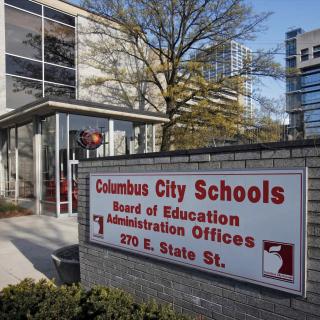Over the last few weeks you’ve seen the ads start to roll in.
In one, Mayor Michael Coleman talks about it being time for Columbus City Schools to match the rest of the city’s greatness. There is a commercial with a teacher and one with a parent. And just this past week mailers, replete with images of smiling children, began to arrive at homes in the district.
The district's levy campaign – Coleman’s education commission-cum-levy commission known as Reimagine Columbus Education – has begun in earnest to “sell” issues 50 and 51 ahead of the Nov. 5 election.
The 9.01 mil levy will bring approximately $76 million into the system for each of the next four years. One-third is for district operations and five of the other six mils deal with teacher training and retention, technology and expanding pre-kindergarten. It represents a 23.5 percent tax increase, or $315 additional every year for every $100,000 of home value.
But just over ten percent of the levy is funding “high-performing charter schools.” And that means getting the levy passed won’t be an easy task. As we reported last week, there is a sense within the district that voters could find the section of the levy dealing with charter schools so unpalatable they reject the legislation as a whole.
And that reality is a concern held by some of the district’s teachers.
“I don’t like it,” said Angel Dyer of charter schools being included in the levy. “But it’s what we have.”
Dyer, who has taught full-time in the district for ten years, attends church in Clintonville. Recently she’s been hearing from fellow parishioners who are vehemently opposed to the charter school section.
“A couple friends and I have stopped talking about the levy altogether,” she said with a laugh.
Dryer says she likes that the charter school piece is a grant program and believes that will promote accountability for charter schools that end up being selected to receive funding.
“I can see their hesitation,” Dyer said of voters uncomfortable with the charter school piece of the levy. “But at the same time, as a teacher, these levies are all we have until the state finds a proper way to fund us.”
Daria DeNoia is a former district elementary teacher who now works for CCS in its Peer Assistance and Review (PAR) program as a mentor for new teachers. She says she is sympathetic to voters wary of linking their tax revenue with charter schools, but thinks the current situation makes it a necessity.
“I understand it,” DeNoia said. “But the reality is that a lot of our students do choose charters and we want those charters to be good. The problem is that right now many of them are not and this money would only go to (the best ones). It’s not as though every single (charter) school would get that money.”
Like Dyer, DeNoia sung the praises of several key pieces of the levy, particularly bringing pre-kindergarten to more Columbus residents. If passed, the levy would use $8.5 million per year to expanding pre-K in the district.
“I find that incredibly important,” she said. “A year or two of pre-K would get them ready for kindergarten and the demands our 21st century education policy places on them.”
Not surprisingly the teachers of Columbus are behind the levy. The district’s 4,200-member teachers union Columbus Education Association voted unanimously to endorse the levy at a meeting last week. Rhonda Johnson, who is president of the CEA, said they are in favor of all portions of the levy.
She said the as-yet unnamed standards, which will be placed on charter schools wishing to receive funding, should give voters some reassurance. She also pointed to language in the levy which states only non-profit charter schools qualify.
“They will have to be transparent with how they use their dollars,” Johnson said of the charter schools.
Johnson emphasized a belief shared by the teachers that the district needs the levy to give itself a chance at turning around what is currently a struggling district.
“It is revenue for the school district,” Johnson said. “I can’t imagine voting against yourself and your kids.”



